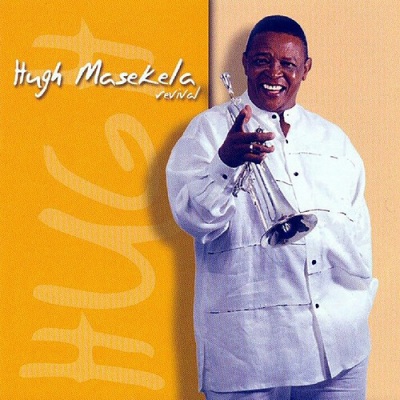
Revival
by Thom JurekTrumpeter /composer Hugh Masekela's first outing in three years finds him in the company of some of South Africa's hottest young Kwaito producers and musicians. Masekela has pursued his own meld of South African township music and folk styles, pop, jazz, R&B topical songs, and blues. He has added to that mix the rhythmic invention of urban soul and hip-hop. Produced by Zwai Bala and Godfrey "Guffy" Pilane, Masekela swings for the smooth jazz radio fences with an eye toward crossing over to quiet storm play lists. "After Tears," which opens the set, is very much in the vein of the laid-back entwining of jazz and township styles. One can hear the trace influence of Abdullah Ibrahim's melodic sensibilities as a laid-back, shimmering groove that would not be out of place next to his monster smash of yore, "Grazing in the Grass." The rest is primarily vocal, with Bala taking the lead on the single "Woman of the Sun," a paean to modern women. Its relaxed, Nigerian rhythmic backdrop and punchy front horn lines seamlessly ground the tune as Bala and the percussionists ease the message across. Masekela's solo is simple but gorgeous, full of space and light. Themba Mokeona's sparkling guitar kicks off "Spring," ushering in Masekela's optimistic vocal. His singing is gritty, a contrast to the slick, smooth groove of the body, and it works. The political bent of "District Six" is framed in township jive, with a stellar vocal performance by Corlea. The sultry space and simmer of "Fresh Air" is an overtly smooth jazz groove, but with a twist. His muted trumpet head takes its cue from Miles Davis during his Gil Evans period. The chorus that backs him on "Smoke" is infectious. Add to this tight little fills from his muted trumpet and it's irresistible. The relaxed, mid-tempo cover of the Isley Brothers' "For the Love of You" hosts a lovely arrangement with a slippery backbeat, before the album closes with the chant- and drum-heavy "Working Underground," a poignant, sorrowful, and angry song about South Africa's miners and their plight. Even here, though, the lyrics and singing are rooted in a music that contains no bitterness, only light as it carries sorrow. More than any of his previous recordings, this feels like Masekela's manifesto of self-determination. He's made political records before, but this one is different. It's weighted by the social and cultural in both lyrical content and in its reach over the musical landscape.
